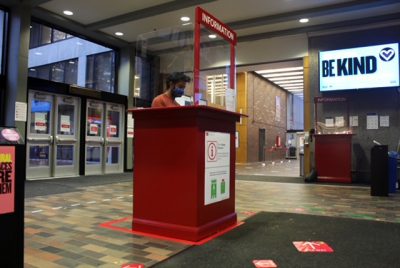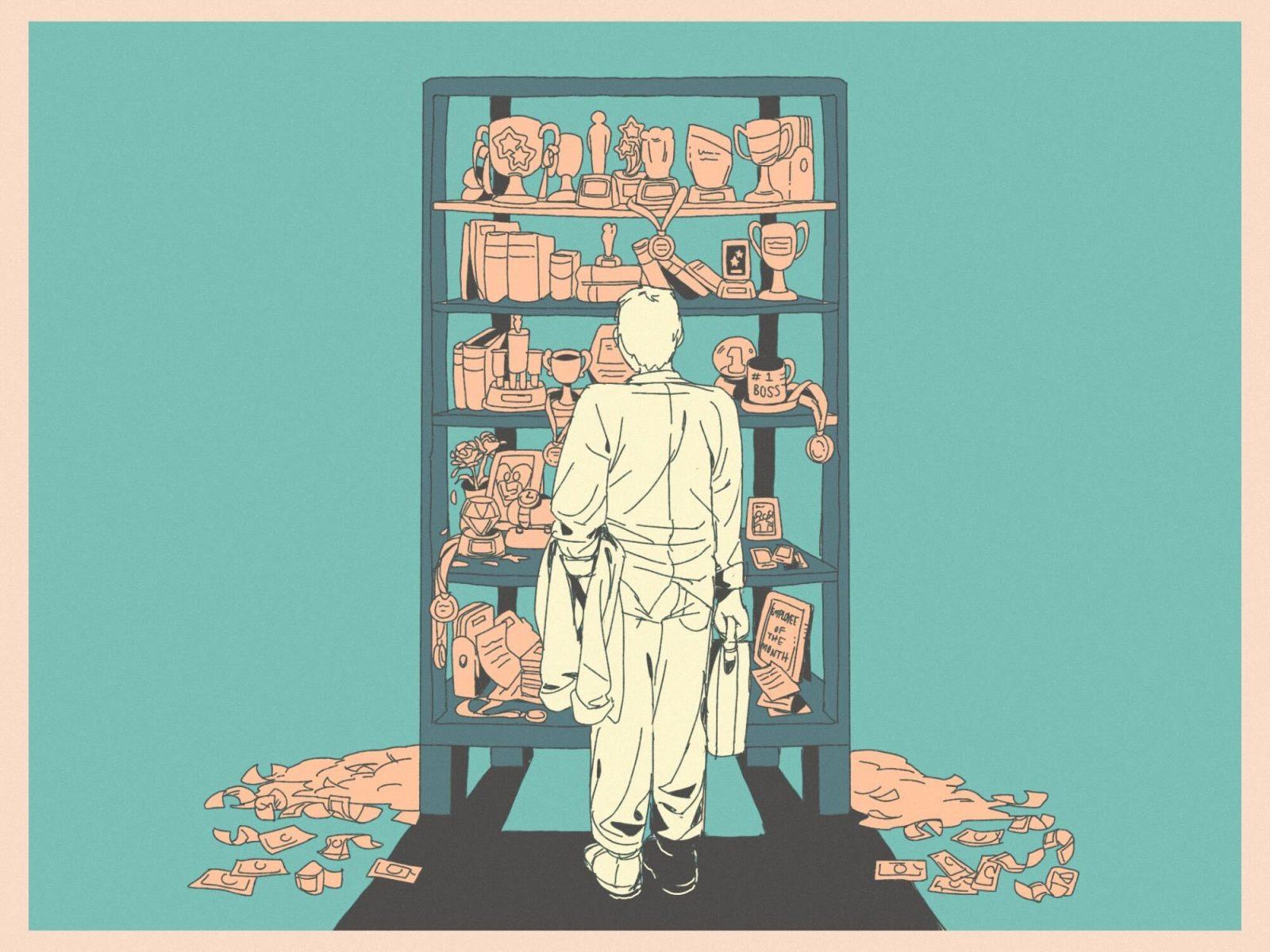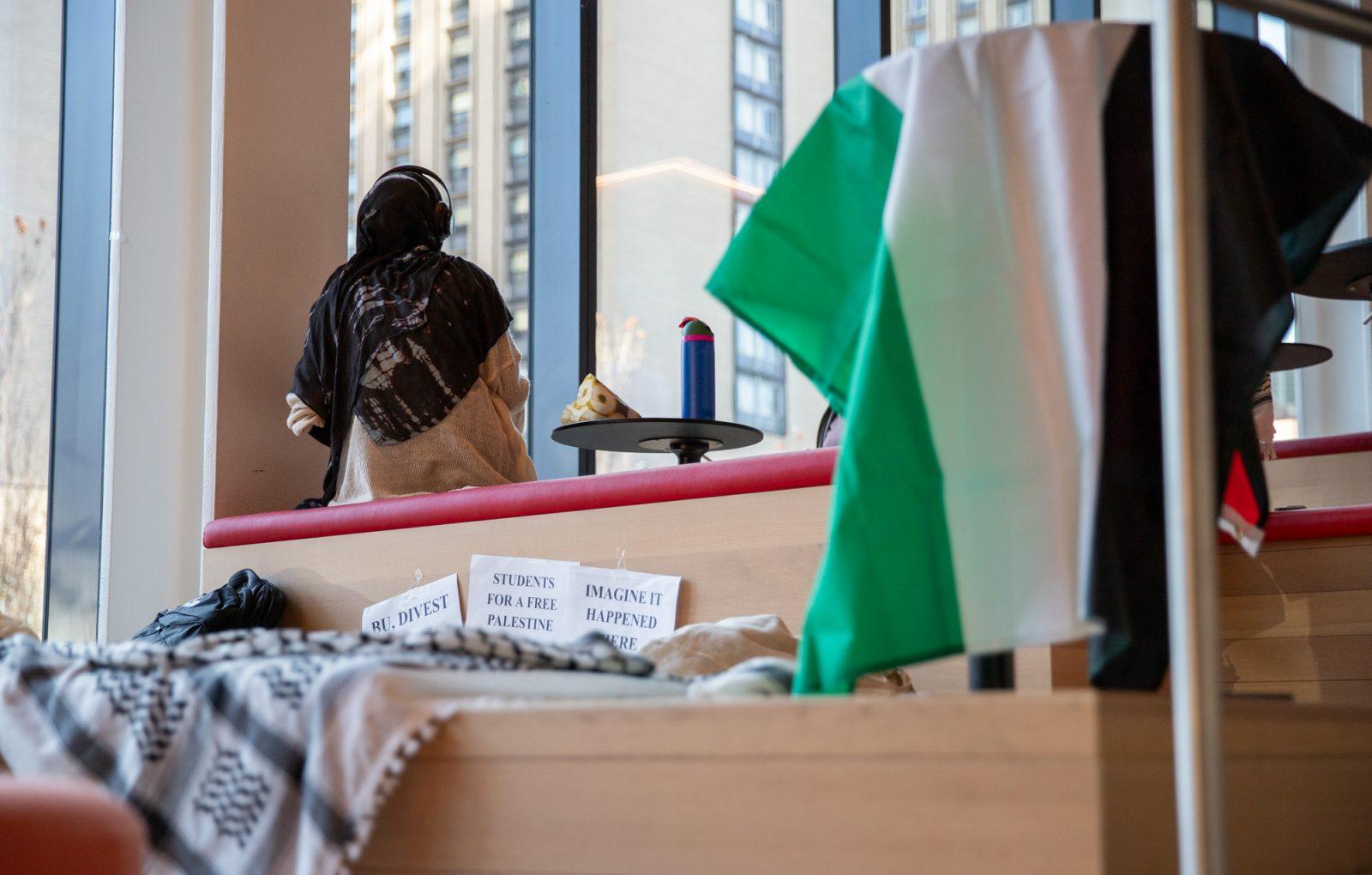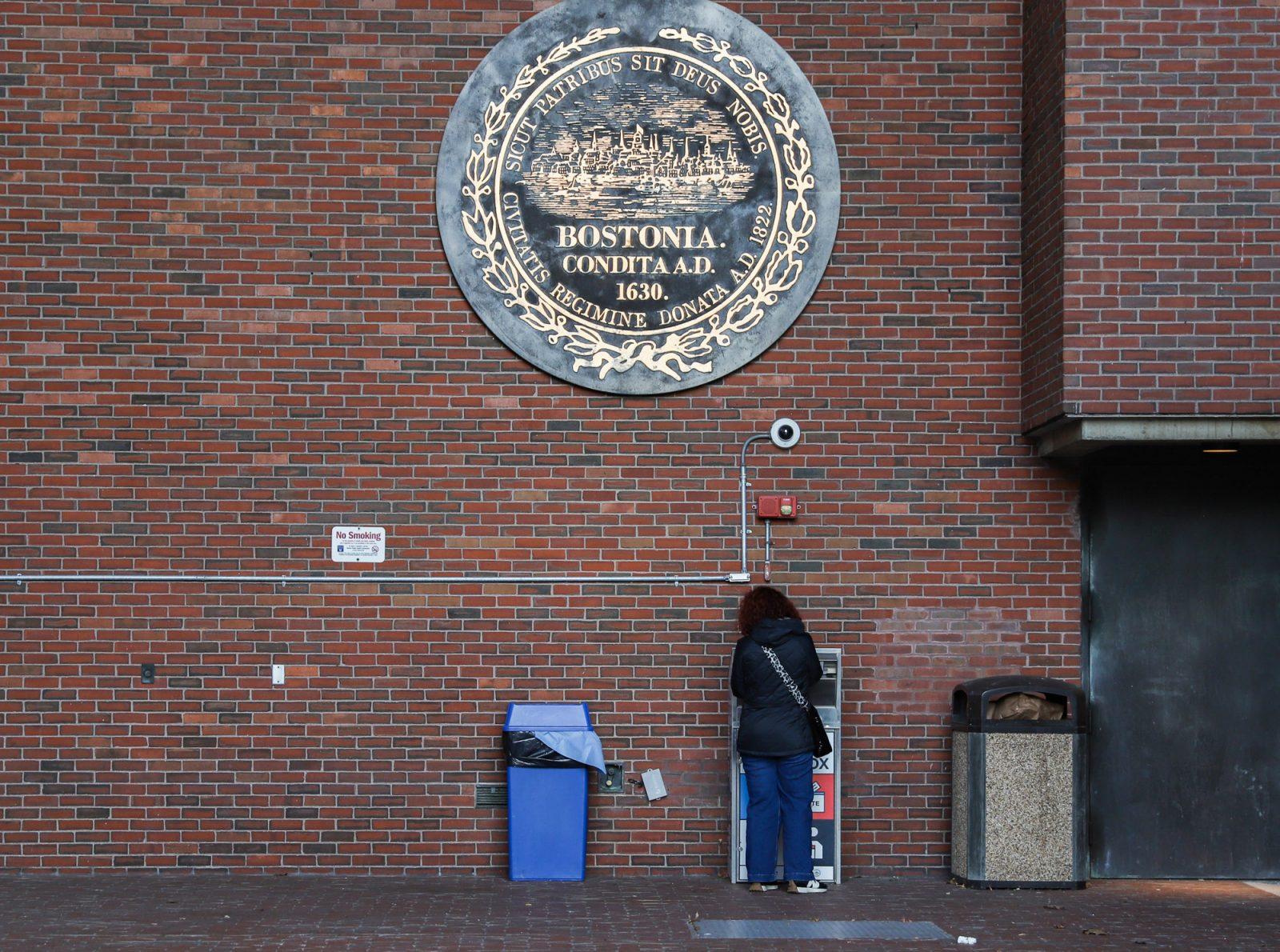
Following Scarlet Safewalk’s rebrand into a student group focused on engagement and safety, the service is now checking badges for entry into the George Sherman Union.
Students Activities Office Director John Battaglino said this is part of the group’s commitment to uplifting the community through COVID-19.
Compliance checks — in the form of green badge presentation — began Oct. 22 in multiple BU buildings, including dining halls. Battaglino said students will also provide positive affirmations to those following University COVID-19 guidelines.
“When they see somebody with a good-looking mask on, they’re going to say, ‘Hey, thanks for doing that,’” Battaglino said. “When they see a group of folks that are safely distanced and they’re engaged, they’re going to respond to that in a public fashion, so that other folks … want to join in, want to be acknowledged for doing all the right things.”
Students from the street teams are placed in the entrances of the GSU to check for green compliance as students enter the building.
Badges will be checked upon entering residence halls with security desks starting Thursday, Dean of Students Kenneth Elmore wrote in an email to students sent by BU Housing Wednesday.
BU spokesperson Colin Riley wrote in an email the checks will be done by residence hall Security Assistants, not street teams.
Battaglino said the street team’s new responsibility was based on an “immediate need” from Elmore and President Robert Brown’s request.
“What they’re really doing is they’re offering a warm smile saying, ‘Thanks for doing that, thanks for showing your attestation, thanks for complying,’” Battaglino added. “By recognizing people in that way, it just sends a positive vibe and then everyone wants to get on board.”
Street team member Joseph Park, a freshman in the College of Arts and Sciences, said checking for compliance is important, especially as Boston sees an uptick in COVID-19 cases.
Park said part of his job requires checking tables in dining halls to ensure students adhere to social-distance guidelines and table capacities. When students were asked to adjust to the guidelines, he said, most did.
“It makes me feel good that people are caring about their safety and the safety of others,” Park said. “It’s very beneficial to the community at BU because I don’t think many people realize how severe COVID can be.”
Park said he did originally want to be a part of the Safewalk initiative, but that the new responsibilities of the street team make him feel more like a “leader.”
“In my hometown these regulations weren’t really enforced at all,” Park said. “Having a part in making sure that all these regulations are enforced makes me feel like when I do go back home, I can try to have more of a say in the regulations.”
Frehiwot Bayuh, a freshman in CAS, said she thinks people might lie about having COVID-19 symptoms, which makes badge checks questionable, yet adds security regardless.
“People can do their surveys. We don’t know if they’re being honest or not,” Bayuh said. “But at the same time, it’s just better to have it than not.”
CAS freshman Janna Foy said she believes the green badge checks are beneficial but aren’t the best way to prevent the spread of COVID-19.
“Usually, I just see people filling it out when they’re trying to get into buildings, myself included,” Foy said. “At that point, it doesn’t really feel like we’re actually being authentic.”
Foy also said she believes using students to enforce COVID-19 regulations across campus might prove less efficient than placing the charge with BU officials.
“I feel like students would just brush it off if they see someone their age come up and say, ‘Wear a mask,’” Foy said.
Battaglino said BU has discussed reforming the Scarlet Safewalk for years, and the pandemic highlighted the urgency.
“It’s been needed for a long time and could have addressed a number of other issues,” Battaglino said. “I look forward to this team growing in the future and how we respond to what’s next.”
The future of the street team — post-COVID-19, Battaglino said — might look different, but it’s unclear at this point.

























































































































